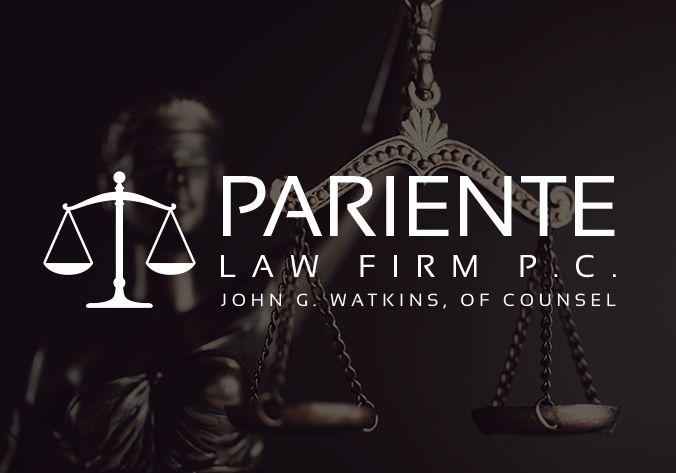
Las Vegas Child Endangerment Attorney
Child endangerment is a broad term that can apply to a variety of situations. People most often think it is connected to domestic violence. Although it can be, a person can be charged with endangering a child for a variety of other reasons. No matter the situation, these charges should be taken seriously.
If a person is convicted of child endangerment, he or she could face serious consequences. In addition to jail time and expensive fines, he or she could be forced to enter counseling. Most importantly, a person now will have a criminal record with the history of the charge made public. Crimes involving children carry a social stigma, and this conviction could affect all aspects of a person’s life.
Child Endangerment Defense in Nevada
If you have been accused of endangering the well being and health of your child or another, contact an experienced Las Vegas child endangerment defense lawyer at Pariente Law Firm, P.C.. Attorney Michael Pariente and his legal team can fight for your rights and protect your future. We can help you fight for a favorable outcome in your case.
Pariente Law Firm, P.C. represents clients throughout the Las Vegas area, including those in Henderson, Paradise and anywhere else in Clark County. Call (702) 966-5310 to schedule a free consultation. Michael Pariente can use his more than 15 years of experience to guide you through either state or federal charges.
Information About Child Endangerment
- What is Considered Child Endangerment?
- Penalties for Endangering a Child
- Defenses to Child Endangerment Charges
What is Considered Child Endangerment?
A person who willfully causes a child younger than 18 years old to suffer unjustifiable physical pain or mental suffering as a result of abuse or neglect could be charged with child endangerment, according to Section 200.508 of the Nevada Revised Statutes.
Additionally, if a person places a child in a situation where he or she may suffer physical pain or mental suffering as the result of abuse or neglect, that adult could be charged with child endangerment. In these cases, the child does not have to be harmed. The threat of harm is enough to constitute a charge.
According to state law, “abuse or neglect” means physical or mental injury of a non-accidental nature, sexual abuse, sexual exploitation, negligent treatment or maltreatment of a child under the age of 18 years old.
Child endangerment does not necessarily have to be related to a domestic violence incident. However, it can be. For example, if one parent knows the other is abusive and he or she allows the child to remain in a home with them, that person could face child endangerment charges.
Some of the most common occurrences that lead to child endangerment charges include:
- Driving under the influence with a child in the vehicle
- Domestic violence dispute causing an accidental injury to the child
- Neglecting the health of the child, such as failing to provide nourishment
- Failing to seek medical help when necessary
- Poor living conditions, including filthy bedding
- Possessing or consuming illegal substances near the child
- Leaving a child alone in a hot vehicle or hot room
Child endangerment charge could apply even if the actions were not intentional. For instance, if a person forgets his or her child in the vehicle, the action was not done so purposefully. In these cases, a defense attorney may be able to build a strong defense in your case.
Penalties for Endangering a Child
Because child endangerment laws are so specific in Nevada, the penalties differ based on the offense. For instance, the penalties for an offense can be determined based on the child’s age, if he or she suffered substantial harm and if the person previously had been convicted of an offense.
A person who willfully causes a child who is less than 18 years of age to suffer unjustifiable physical pain or mental suffering as a result of abuse or neglect or to be placed in a situation where the child may suffer physical pain or mental suffering as the result of abuse or neglect:
If substantial bodily or mental harm results to the child —
- If the child is less than 14 years old and the harm is the result of sexual abuse or exploitation, the offense is a Category A felony punishable by life in prison with the possibility of parole when a minimum of 15 years has been served
- All other cases would be considered a Category B felony punishable by between two and 20 years in prison
If substantial bodily or mental harm does not result to the child —
- If the person has not previously been convicted of a violation of this section, the offense would be a Category B felony punishable by between one to six years in prison
- If the person has previously been convicted of a violation of this section or any other jurisdiction that prohibits similar conduct, the offense would be a Category B felony punishable by between two and 15 years in prison
A person who is responsible for the safety or welfare of a child and who permits or allows that child to suffer unjustifiable physical pain or mental suffering as a result of abuse or neglect or to be placed in a situation where the child may suffer physical pain or mental suffering as the result of abuse or neglect:
If substantial bodily or mental harm results to the child —
- If the child is less than 14 years old and the harm is the result of sexual abuse or exploitation, the offense is a Category A felony punishable by life in prison with the possibility of parole when a minimum of 10 years has been served
- All other cases would be considered Category B felony offenses punishable by between two and 20 years in prison
If substantial bodily or mental harm does not result to the child —
- The offense is a gross misdemeanor, If the person has not previously been convicted of a violation of this section or a law prohibiting the same or similar conduct
- The offense is a Category C felony, if the person has previously been convicted of a violation of this section or a law prohibiting the same or similar conduct
Defenses to Child Endangerment Charges
When a person is charged with endangering a child, he or she may feel like there are no options as far as a defense. The charges can feel overwhelming and threatening, but a skilled domestic violence defense attorney can help you build a solid defense.
For instance, in some cases the charges could be the result of false accusations. Often people in family disputes or domestic matters can make these accusations about another. One parent or guardian may allege the other is not sufficient in caring for their children. An attorney can investigate the situation and use evidence to prove the allegations are false.
In other cases, a defense lawyer can capitalize on the lack of intent. A person does not commit a child endangerment offense if he or she places the child in a situation believed to be safe. For example, if a longtime babysitter is found to have illegal substances within his or her home and the parents were not aware of the situation, it likely would not be considered child endangerment.
Finding the Best Child Endangerment Defense Lawyer in Nevada
With these charges it is important to gather as much evidence as possible to help protect yourself from these serious charges. A Las Vegas child endangerment defense attorney can investigate your unique case and begin building a strong defense.
Contact Michael Pariente of Pariente Law Firm, P.C. at (702) 966-5310 today.

Read Our Case Results
-
 Casino Marker
Casino Marker -
 Casino Marker
Casino Marker -
 Battery Constituting Domestic Violence
Battery Constituting Domestic Violence -
 Battery and Domestic Violence
Battery and Domestic Violence -
 Attempted Murder, Kidnapping, Burglary, and Battery
Attempted Murder, Kidnapping, Burglary, and Battery


